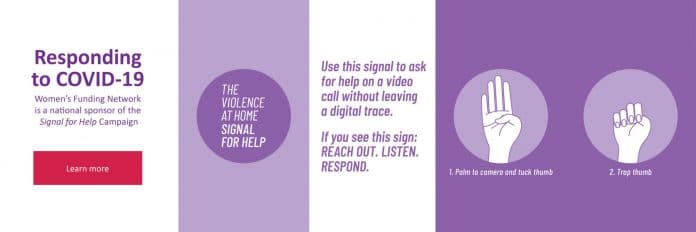The phrase “safer at home” is one that dominates our culture and rules our daily lives. With a global pandemic threatening our collective health, we are encouraged to retreat to the security and familiarity of our own houses as much as possible.
But what happens when home isn’t safe? What happens when you find yourself confined in your house with someone who means to do you harm?
“Mounting data suggests that domestic abuse is acting like an opportunistic infection, flourishing in the conditions created by the pandemic,” wrote Amanda Taub in the article A New Covid-19 Crisis: Domestic Abuse Rises Worldwide, published in The New York Times (https://www.nytimes.com/2020/04/06/world/coronavirus-domestic-violence.html).
“Now, with families in lockdown worldwide, hotlines are lighting up with abuse reports, leaving governments trying to address a crisis that experts say they should have seen coming.”
And an even deeper issue exists, as even the act of calling a domestic violence hotline carries with it an inherent level of risk.
“During a conference call with other domestic violence shelters, we discussed the decline of people coming into shelters, and the decline of calls coming into the shelter hotlines,” said Shannon Sokolowski, MNM, Executive Director of Dawn Center of Hernando County, a certified domestic and sexual violence center. “It’s not because the abuse has stopped. It’s because there’s a danger in using voicelines–the danger of being overheard by the abuser who–because of stay at home orders–is right there in the next room.”
As an innovative response to this issue, the Dawn Center is enabling and empowering survivors to speak out louder by communicating quietly.
Dawn Center has expanded their helpline services by launching new text and web chat features; thus empowering survivors to connect with a trained helpline advocate without fear that their conversation will be overheard. For more information or to contact a trained advocate, please call or text (352) 686-8430 at any time or visit online at www.dawncenter.org.
“We tested platforms that offered the most confidentiality and advanced, privacy-centered technology,” said Sokolowski. “Platforms with encryption and no cookies, where IP’s are not recorded or collected. The chat sessions do not involve voice, and there’s a quick escape button that can be pushed to exit the chat.”
Of course, any Internet-based communication might possibly be monitored through history searches, spyware installations, etc. Yet by supplying safety-minded platforms, Dawn Center hopes to make the call for help a little easier.
Dawn Center of Hernando County is a certified domestic and sexual violence center that has provided no cost supportive services for survivors to heal and plan their futures since 1986. Now reaching more than 2,000 local survivors each year through programs such as a 24/7 helpline, emergency shelter, and its many outreach services (offering resources that include the formulation of a safety plan, informational and financial resource referrals, etc.), the center is expanding with the times–and, given the events of the last few months, Sokolowski sees the need.
“One woman wanted to call for help during quarantine. She had been sheltering with her abuser for several weeks and was not safe,” she said. “The day that she was able to return to work, she called us for help. Another did call from home, but had to whisper to our advocate, so as not to be overheard.”
Aside from the new chat and text services, Sokolowski says that Dawn Center also is planning to begin online virtual support groups to serve survivors in need of help.
In the meantime, friends of survivors can do their part to help; by subtly passing along hotline information if needed, and by being there to listen and understand.
“Don’t be judgmental,” Sokolowski said. “Listen. And most of all, believe.”
The Women’s Funding Network suggests another method by which survivors can alert their friends to the need for aid in a domestic violence situation: a universal Signal for Help.
If conducting a video chat call with a trusted friend, a domestic violence (dv) survivor can flash a hand signal to indicate that they’re in need of help. They can put their hand to the camera and tuck their thumb to their palm, then trap the thumb with all four fingers. To see a diagram of the signal, visit https://www.womensfundingnetwork.org/signalforhelp/. To view a demonstration, visit https://www.youtube.com/watch?v=ycir8OH-BDo.
“Every survivor’s case is different,” she said. “This is why every type of care we offer is different.”
And with the introduction of these services, each survivor can receive life saving–and restoring–information in the way that best suits the needs of her and her family.

